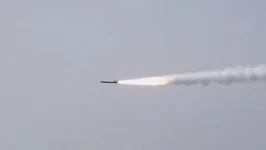
New Delhi – Following reports that the United States intends to seek the extradition of Vikash Yadav, a former Indian armed forces official implicated in an alleged plot to assassinate Khalistani terrorist Gurpatwant Singh Pannun, the Indian government is preparing to respond with its own list of extradition requests. Yadav has been labeled a ‘most wanted’ individual by the FBI and named by the U.S. Department of Justice in connection with the plot.
India's list includes numerous high-profile fugitives residing in the U.S., whose identities and details have been repeatedly shared with American authorities. Notably, it includes Tahawwur Hussain Rana, an accused in the 2008 Mumbai terror attacks that claimed over 160 lives. Also on the list is Pannun himself, who remains a prominent figure on the National Investigation Agency's (NIA) most-wanted list.
Indian officials have indicated that they are under no obligation to comply with the U.S. extradition request and will handle it in accordance with established procedures. They have characterized the coordinated actions of the U.S. and Canada as "expected" and "not surprising," emphasizing their preparedness for such a scenario.
The situation arises amidst escalating tensions between India and Khalistani extremist groups operating in North America. It is believed that the U.S. State Department is concerned about the potential for wanted terrorists operating in Canada, a close U.S. ally, to be targeted at the behest of other nations, challenging the U.S.'s traditional authority in such matters.
Interestingly, these developments coincide with a period of strong Indo-U.S. relations, with the U.S. increasingly relying on India as a key partner in its strategic efforts to counter China's growing influence.
This is not the first instance of apparent contradictions between the U.S. deep state and its political leadership. In the late 1990s, the CIA and Israel's Mossad reportedly recruited Rabinder Singh, a high-ranking Research and Analysis Wing (R&AW) officer, who subsequently defected to the U.S. in 2004 with assistance from the U.S. embassy in Kathmandu. Despite India's attempts to extradite Singh, these efforts were ultimately abandoned in 2007 due to a perceived lack of cooperation from the U.S. government.
However, officials highlight a key difference in the current situation: U.S. agencies are publicly disclosing sensitive information through strategic media leaks, potentially signaling a shift in their approach. This development adds another layer of complexity to the already intricate dynamics of Indo-U.S. relations and the ongoing efforts to combat transnational terrorism.


